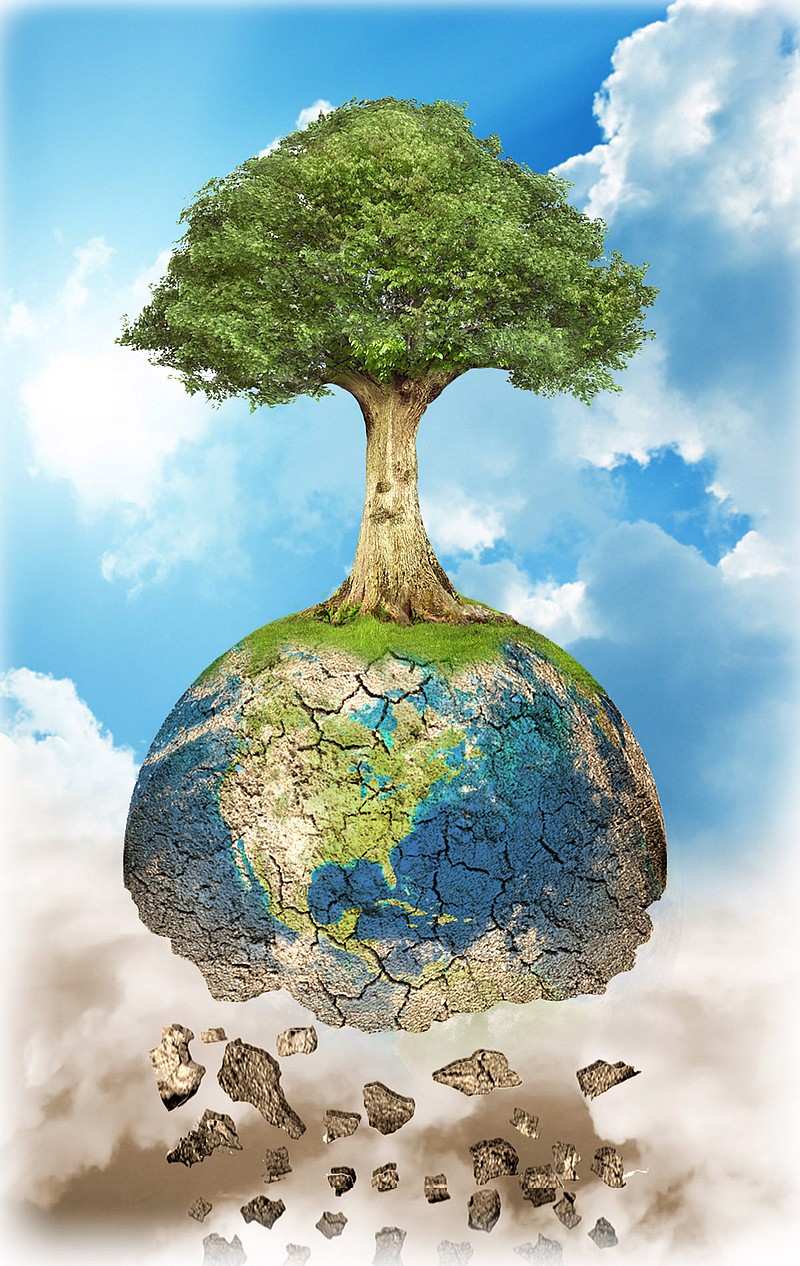The 2010s were a lost decade for climate. We can't afford a repeat, scientists warn. But that looks to be where we're heading under today's derelict political administration.
By the final year of the decade, our Earth had surpassed its 2010 temperature record six times. Hurricanes devastated New Jersey, Puerto Rico and the Bahamas. Floods swamped the Midwest and Bangladesh. Southern Africa still is seared by dire drought. Australia and the Amazon are afire.
Though we know the cause - global and unsustainable carbon emissions - those emissions are expected to hit an all-time high this year, putting us on track to cross the red line for tolerable warming within just one more generation.
Coincidentally, 2010 was the same year the United Nations released its first "emissions gap" report detailing the disparity between commitments made by nations to reduce greenhouse gases and what is needed to protect our future. It estimated countries should be curbing emissions about 3% per year. Most countries missed it - even with the 2015 Paris climate accord - the first-ever global agreement to limit warming to "well below 2 degrees Celsius." That's the same Paris climate accord out of which Donald Trump pulled America.
Now scientists are acknowledging that their earlier warnings didn't go far enough. Now we know more, and are learning more, yet we're doing less. Scientists now say that to get on track to achieve a less disastrous temperature rise, nations must nearly halve their emissions by 2030. Instead, we're so off-track that global temperatures now are on pace to rise as much as 3.9 degrees Celsius - that's 7 degrees Fahrenheit - by the end of the century, according to the 2019 U.N. "emissions gap" report.
How dire is it?
1. 2019 is on track to be among the six hottest years ever recorded on the planet. And guess what: There’s a pattern. Those other years are 2014, 2015, 2016, 2017, 2018.2. Four of the five largest wildfires in California history happened in the 2010s decade.3. Six Category 5 hurricanes tore through the Atlantic region in the past four years.4. Arctic sea ice cover dropped about 13% over the last decade.5. Floods so enormous they are classified as having only a 1-in-1,000 chance of happening in any given year became frequent occurrences.6. In the last 10 years, there were at least 115 “billion dollar” climate disasters as of early October, 2019 — double from the decade before.Source: NOAA and the Huffington Post
"Bleak" was the word in most headlines about the report. Disgusting is a better descriptor.
It's not that we or climate scientists are saying that missing the 2030 deadline should be treated like a death sentence or an expected sudden explosion of Earth into a ball of fire.
Georgia Tech researcher Kim Cobb recently told The Washington Post that the climate science reports are better understood as a road map for navigating the perilous path to sustainability.
"Climate change is not a cliff. It's not a pass-fail course," Cobb said. "If we meet the [2030] target, there may still be tons of ugly surprises. And if we don't meet it, it's not that everybody's going to die."
But she made clear that our decisions over the next 10 years will affect the magnitude of climate change for centuries to come.
(Read more: AP EXPLAINS: How Madrid talks fell short on climate ambition)
"I don't think it can get more sobering than that," Cobb told The Post.
Sobering indeed. We see it here already.
The Times Free Press reported Thursday that the Tennessee Valley recorded record yearly rainfall for the second time in the last two years. That meant Chattanooga had broken at least 18 weather-related records in 2019 by mid-October. In the year before, we'd seen only five such record-setting days or events. Among 2019's local record breakers was a long fall heat wave that gave us a string of 100-degree days in October. Yes, 100 degrees. In October. In the foothills of the Appalachian Mountains. And that was followed with the most severe early November cold snap in more than a century. Temperatures 20 to 30 degrees below normal covered much of the eastern third of the nation. Climate change isn't just about warming it's about weather extremes.
Experts say the first and most important step to will be reducing fossil fuel consumption. According to the 2019 emissions gap analysis, the past 10 years of inaction have more than doubled the rate at which emissions must fall; to meet the 1.5-degree goal, emissions must be cut by 7.6 percent each year.
Instead, America's carbon dioxide emissions rose an estimated 3.4% in 2018 over 2017. Research analysts say this puts the U.S. a far cry from its Paris Agreement pledge to reduce emissions by 26% to 28% by 2025.
(Read more: Sohn: Arctic ice melts have dire climate warnings for Santa's North Pole - and us)
Where does this leave us?
It leaves us needing to change something besides our climate. It leaves us needing to change our habits and our politicians - especially our president and our Senate. We need new leaders to help us find the best of the Green New Deal, the best of market solutions (clean energy means new jobs) and the best of our collective common sense.
Let's go - 2020 is young still.
